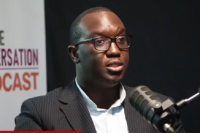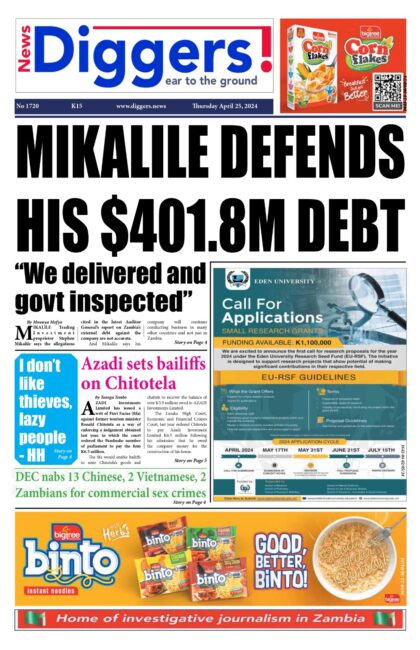The Southern Africa Alcohol Policy Alliance (SAAPA) says the lack of urgency by government to put in place an alcohol policy framework is a time bomb that will cost the nation the much needed human capital.
SAAPA spokesperson, Jonas Ngulube said the inertia by government to have an alcohol policy in place showed a lack of seriousness on the part of government to curb alcohol abuse.
In an interview Ngulube complained that from the time an Alcohol Policy was mooted, eleven years ago, the document was still in draft form.
“Look at the policy development in Zambia. It has taken almost eleven years to develop the National Alcohol Policy. Now if really government was serious, considering the rate of alcohol abuse, can it take this long just to come up with an Alcohol Policy? Last month, we joined the rest of the world in commemorating World Mental Health Day. Government through Chainama College, gave statistics that 70 percent of mental illnesses are alcohol related. But today, the Policy is still not there. So, this is the inertia that we are talking about,” Ngulube said.
He said President Edgar Lungu was contradicting himself in his statement over the political will to end alcohol abuse.
“We are aware that there is a lot of vested interest from the alcohol industries. It is sad to see the President giving political will and leadership through two statements. The first one done on 17th March this year during the National Address and the second one on the 15th of September also this year during the official opening of the National Assembly,” he said.
“But now, you see a contradiction because earlier the President directed to curb alcohol abuse only and at this second time, he added other substances. And now some people are arguing that we should add other substances to the Alcohol Policy. But to me, this argument does not make sense. The urgency on alcohol abuse is not the same with other substances. If 70 percent of admissions on mental health are alcohol related it means the other substances are only 30 percent. So which takes priority 70 percent or 30 percent.”
Ngulube argued that the fight against alcohol abuse would only be successful if the legal framework on alcohol abuse was accompanied by the National Alcohol Policy.
“Government should put up a policy framework because there is already a legal framework, the Liquor Licensing Act of 2011. The legal framework must marry with the policy framework. When this is done, then we shall successfully prevent alcohol abuse,” said Ngulube.












